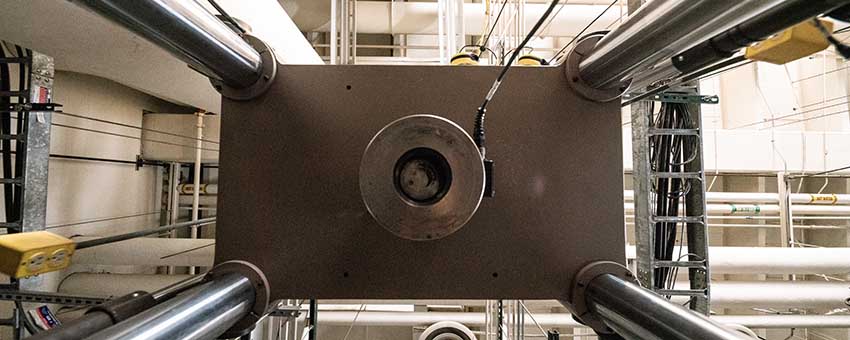
Geotechnical laboratory
Overview
The Geotechnical Laboratory is well-equipped with testing equipment for evaluating all engineering properties of soils and rocks, including index properties, compaction characteristics of soils, hydraulic characteristics, compressibility, rate of consolidation and sheer strength. The equipment ranges from the most fundamental to the most sophisticated and is used in both undergraduate and graduate teaching and research. The laboratory is also equipped with the most complete facility for assessing the effects of earthquake shaking on soils and rocks and foundation performance. The laboratory has the most extensive in-house collection of cyclic triaxial test data on liquefaction of soils.
After 20 years, researchers around the world are still asking for related research reports. High school students from Colorado call it “Earthquake Lab” after the liquefaction demonstrations they have seen in the lab over the last three decades.
Capabilities
The capabilities of the Geotechnical Laboratory are quite diverse and complete. It is equipped with teaching and research equipment, from simple to complex. Besides some fundamental apparatuses, it also contains the following specialty equipment:
- five hydroelectric universal test systems with capacities ranging from 20 kips to 1,000 kips for testing all kinds of materials, like soils, rocks and structure materials with digital controllers for both static and dynamic loading tests a complete set of 15 cyclic triaxial cells for samples with diameters ranging from 2.0 to 6.0 inches for static strength, dynamic
- properties and liquefaction resistance evaluation
- one earthquake-induced liquefaction demonstration shaking table
- one large size hollow cylinder triaxial test apparatus, one of very few in the world, for specialty research in soil mechanics
- laboratory vane shear test apparatus a flow pump system with triaxial cells for assessing the permeability of low permeable soils and rocks and also the effects of
- deicing chemicals on engineering properties of soils
- a 10-ton overhead crane and thick reaction floor with anchor bolt strength of 100 kips each designed for testing full-scale geostructure
In sum, the Geotechnical Laboratory has excellent facilities for testing soils and rocks for their static and dynamic engineering characteristics involved in static and earthquake resistance designs of buildings and associated foundations. The lab is equipped to handle both geotechnical and structural teaching and research.
Faculty
